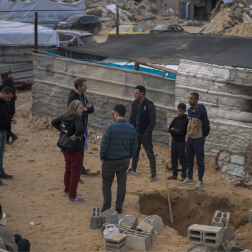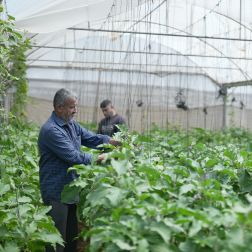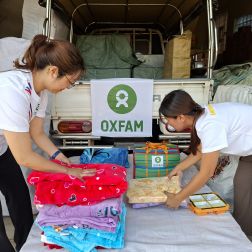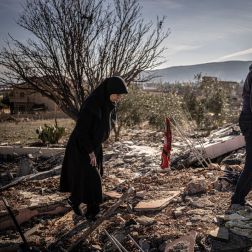- 3 mins read time
- Published: 18th July 2019
Ebola outbreak in Democratic Republic of Congo is declared an international health emergency
News broke yesterday of the first confirmed case of the deadly Ebola virus disease (EVD) in the heavily populated city of Goma in the Democratic Republic of Congo (DRC), located on the Rwandan border.
Serious concerns are being expressed by the World Health Organisation (WHO) for the safety of the one million residents in this large urban area and about the spread of the virus beyond, as Goma serves as a major gateway for transport to and from the DRC.
The WHO has now declared the Ebola outbreak in the DRC a Public Health Emergency of International Concern. This declaration will mean a greater response from the rest of the world on the plight of the Congolese people.
Oxfam has been providing assistance in the Goma region with public awareness and education on how to keep safe and stop the spread of the disease and is ready to respond further if this first confirmed case leads to more.
It is important that travel in this area is unrestricted until we have further information about Ebola in Goma because millions of people depend on cross border trade to make a living in this already extremely poor part of the world.
In the rest of the DRC, we have helped hundreds of thousands of people by providing clean, safe water and working with local community leaders and volunteers to increase understanding of how to prevent Ebola.
Louise is a community leader in a district within Mangina, the most affected area by the Ebola virus. Copyright: John Wessels/Oxfam
Three hundred kilometres north of Goma in Mangina, a community leader, Louise, told us about her experience in this heavily impacted part of the DRC:
“At first we thought Ebola was witchcraft. We thought it was a spell cast on women because they are the one who are most affected. But since we received an explanation, we have understood that it is a very serious disease that strikes us.
“From the beginning of the outbreak, we called a community meeting and we decided to isolate any dead bodies. It was not easy because we do not have a mortuary in Mangina and people usually stay with the body for several days.
“Since the Ebola outbreak many people have died, others are in the hospital. Many children are without their mothers. These children live with difficulty and the community has few means to help them.
“Here in Mangina, even finding food for your household is difficult. Sometimes you can spend the day without eating. We have seen families flee from here, one after the other. They may come back at the end of the epidemic.”
We urgently need your help to continue to play a vital role in preventing the disease from spreading. Oxfam is providing clean, safe water and hygiene kits and working closely wih community leaders and volunteers to raise awareness and increase understanding of how to take preventative measures against the disease.
Please, donate now to help meet the most critical needs. 100% of your donation will go to our Ebola response in DRC.




